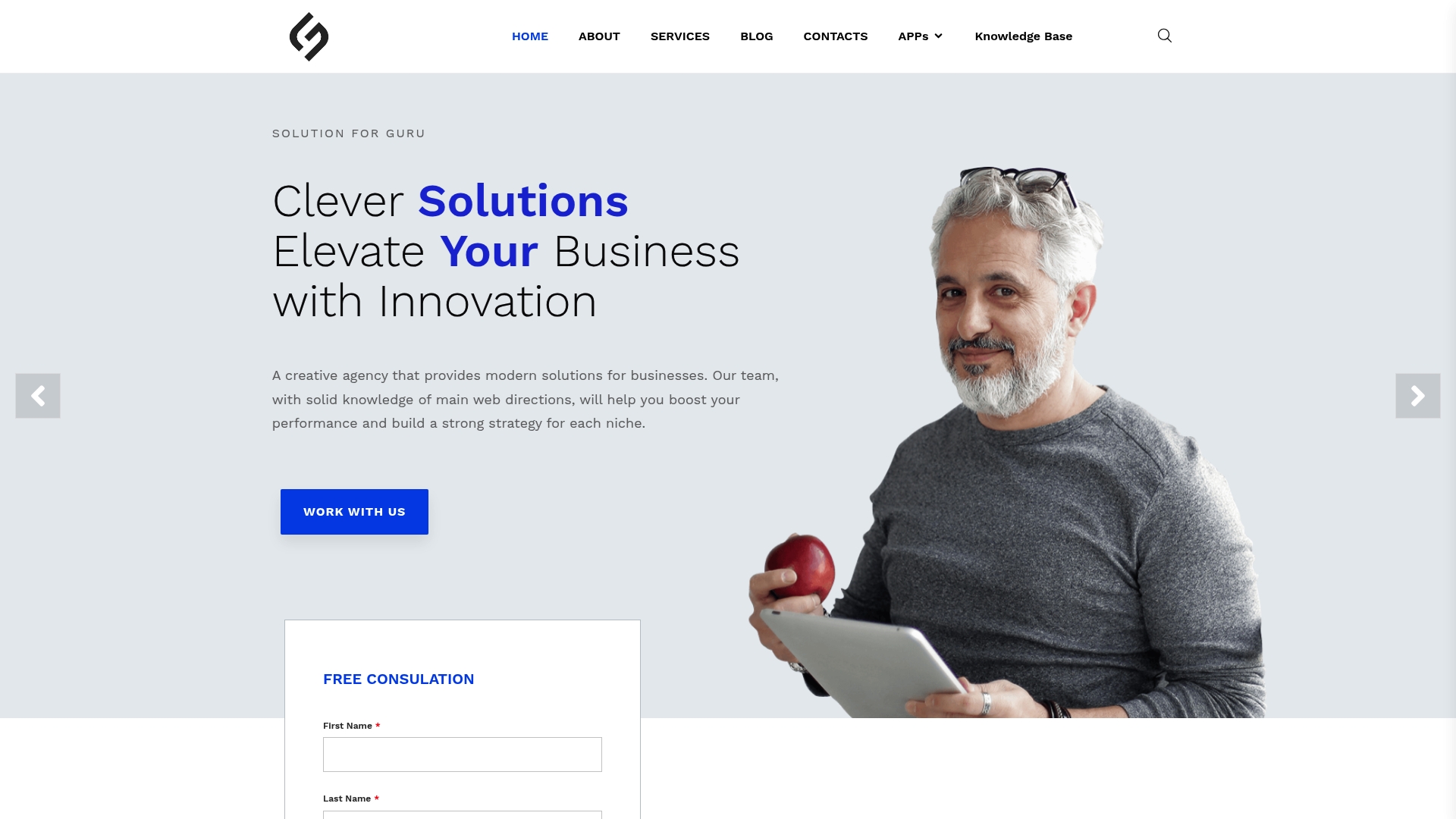Understanding Digital Customer Experience: Key Insights

Digital customer experience now covers every single touchpoint from websites and apps to social media and support chats. Brands are investing more in these channels than ever. Here is the shocker. Companies putting digital interactions at the top of their strategy are seeing nearly 10 percent year-over-year revenue growth while others lag far behind. Most people think it all comes down to shiny tech and trend-chasing. The real difference is the meaningful and lasting connections built through each digital moment.
Table of Contents
- Defining Digital Customer Experience: Core Concepts
- The Importance of Digital Customer Experience in Business Growth
- How Digital Customer Experience Impacts Customer Engagement
- The Role of Technology in Shaping Digital Customer Experience
- Future Trends in Digital Customer Experience: What to Anticipate
Quick Summary
| Takeaway | Explanation |
|---|---|
| Digital experience drives competitive advantage. | Prioritizing seamless, personalized digital interactions enhances customer loyalty and distinguishes brands in a crowded market. |
| Investing in customer experience boosts revenue. | Companies that focus on digital engagement report significantly higher annual revenue growth compared to those with less developed digital approaches. |
| Technology shapes customer interactions. | Utilizing AI, machine learning, and data analytics helps businesses create personalized, responsive customer experiences that foster loyalty. |
| Continuous feedback is essential. | Organizations must regularly analyze customer data and adapt strategies to remain relevant and meet evolving customer expectations. |
| Future trends emphasize intelligent automation. | Emerging technologies will enable proactive customer service and hyper-personalized experiences, transforming traditional engagement models. |
Defining Digital Customer Experience: Core Concepts
Digital customer experience represents the comprehensive interaction between customers and organizations through digital channels, encompassing every online touchpoint and engagement. Learn more about digital transformation strategies that shape these critical interactions.
What Constitutes Digital Customer Experience
A digital customer experience integrates multiple technological platforms and interactions that define how customers perceive and engage with a brand online. These interactions span websites, mobile applications, social media platforms, email communications, live chat systems, and digital support channels.
Key components of digital customer experience include:
- User Interface Design: How visually appealing and intuitive digital platforms appear
- Accessibility: Ensuring digital platforms are usable across different devices and for users with varying abilities
- Performance Speed: The responsiveness and loading times of digital platforms
Strategic Importance of Digital Customer Experience
According to the U.S. Department of Labor, understanding customer pain points in digital systems is crucial for organizational success. Organizations that prioritize digital customer experience can achieve significant competitive advantages by creating seamless, personalized interactions that meet evolving customer expectations.
Modern businesses recognize that digital customer experience is not just about technology but about creating meaningful, efficient, and emotionally resonant connections. This approach transforms traditional transactional relationships into dynamic, interactive experiences that build long-term customer loyalty and trust.
Effective digital customer experience strategies require continuous feedback, data analysis, and adaptive technologies that respond quickly to changing user preferences and technological innovations.
The Importance of Digital Customer Experience in Business Growth
Digital customer experience has become a critical determinant of business success in the modern competitive landscape. Explore key strategies for digital transformation that can drive substantial organizational growth and innovation.
Economic Impact of Digital Customer Experience
Businesses that invest strategically in digital customer experience can unlock significant economic advantages. According to research from the National Center for the Middle Market, companies prioritizing digital interactions report nearly 10 percent year-over-year revenue growth, compared to just 4.7 percent for organizations with less sophisticated digital approaches.
Key economic benefits include:
- Increased customer retention rates
- Higher customer lifetime value
- Reduced customer acquisition costs
- Enhanced brand reputation and market positioning
For a clear view of the direct economic impact of investing in digital customer experience, the table below compares research-based business outcomes for companies with high versus low digital engagement.
| Company Type | Year-Over-Year Revenue Growth (%) | Notable Benefits |
|---|---|---|
| High Digital Experience Focus | 10 | Increased retention, higher lifetime value, lower acquisition costs |
| Low Digital Experience Focus | 4.7 | Lower growth, limited customer loyalty |

Competitive Differentiation Through Digital Experience
In an era where technological capabilities rapidly evolve, digital customer experience serves as a primary mechanism for distinguishing a brand from its competitors. Modern consumers expect seamless, personalized, and intuitive digital interactions that transcend traditional transactional relationships.
Successful organizations understand that digital customer experience is not merely about technological implementation but about creating meaningful connections that build long-term customer trust. This approach requires continuous adaptation, advanced data analytics, and a deep understanding of changing user preferences and behaviors.
By transforming digital touchpoints into engaging, responsive, and user-centric experiences, businesses can convert casual interactions into loyal customer relationships that drive sustainable growth and competitive advantage.

How Digital Customer Experience Impacts Customer Engagement
Digital customer experience has become a transformative force in how businesses connect with and retain customers. Discover advanced digital transformation strategies that can revolutionize customer engagement approaches.
The Mechanics of Digital Customer Engagement
According to research from PubMed, a positive online customer experience significantly enhances customer engagement, creating a powerful cycle of interaction and loyalty. The relationship between digital platforms and customer engagement is complex and multifaceted, involving several critical interaction points.
Key dimensions of digital customer engagement include:
- Emotional Connection: Creating meaningful digital interactions
- Personalization: Tailoring experiences to individual user preferences
- Responsive Interaction: Providing immediate and relevant digital communication
Technological Drivers of Customer Engagement
Modern digital technologies enable businesses to create more sophisticated and interactive customer experiences. These technologies go beyond traditional transactional models, focusing on building comprehensive relationships through multiple digital touchpoints.
Successful digital customer engagement strategies leverage advanced technologies such as artificial intelligence, machine learning, and data analytics to understand and anticipate customer needs. By transforming raw data into actionable insights, organizations can create more intuitive and responsive digital experiences that resonate with customers on a deeper level.
Businesses that effectively integrate digital technologies into their customer engagement strategies can develop more meaningful, personalized connections that transcend traditional marketing approaches, ultimately driving customer loyalty and long-term business growth.
The Role of Technology in Shaping Digital Customer Experience
Technology has become the fundamental architect of modern customer interactions, fundamentally transforming how businesses engage with their audiences. Explore cutting-edge digital transformation insights that are revolutionizing customer experience strategies.
Technological Foundations of Customer Experience
According to MIT Sloan Management Review, digital transformations are fundamentally reshaping how organizations conceptualize and deliver customer experiences. The technological infrastructure now serves as the primary conduit for creating meaningful, personalized interactions.
Key technological enablers include:
- Artificial Intelligence: Generating predictive and adaptive customer insights
- Machine Learning: Creating personalized experience pathways
- Big Data Analytics: Understanding complex customer behavior patterns
Advanced Technologies Driving Customer Interactions
Modern technological ecosystems empower businesses to transcend traditional engagement models by offering unprecedented levels of personalization and real-time responsiveness. Sophisticated technologies like natural language processing, predictive analytics, and cloud computing enable organizations to create dynamic, intelligent customer interaction platforms.
These technologies allow businesses to develop nuanced understanding of individual customer preferences, anticipate needs before they arise, and deliver seamless, contextually relevant experiences across multiple digital touchpoints. By integrating advanced technological capabilities, organizations can transform passive customer interactions into active, engaging dialogues that build long-term loyalty and trust.
To clarify the technological foundations and advanced technologies impacting digital customer experience, the following table summarizes key technologies and their primary roles as discussed in the article.
| Technology | Role in Digital Customer Experience |
|---|---|
| Artificial Intelligence (AI) | Generates predictive and adaptive customer insights |
| Machine Learning | Creates personalized experience pathways |
| Big Data Analytics | Understands complex customer behavior patterns |
| Natural Language Processing | Enables intelligent, context-aware communication |
| Predictive Analytics | Anticipates customer needs and preferences |
| Cloud Computing | Facilitates real-time, scalable customer interactions |
Future Trends in Digital Customer Experience: What to Anticipate
The digital customer experience landscape is rapidly evolving, driven by emerging technologies and changing consumer expectations. Explore transformative digital strategies that will shape future customer interactions.
Emerging Technological Paradigms
According to the CDP Institute, by 2030, nearly 67% of digital brand interactions will be managed by intelligent machines. This profound shift indicates a fundamental transformation in how businesses engage with customers.
Key anticipated technological trends include:
- Hyper-Personalization: Using advanced AI to create individually tailored experiences
- Predictive Customer Service: Anticipating customer needs before they arise
- Immersive Technologies: Integrating augmented and virtual reality into customer interactions
Intelligent Automation and Customer Experience
Future digital customer experiences will be characterized by unprecedented levels of intelligent automation. Advanced technologies like artificial intelligence, machine learning, and natural language processing will enable businesses to create more responsive, adaptive, and contextually aware interaction platforms.
These technologies will allow organizations to move beyond reactive customer service models, developing proactive systems that can predict customer preferences, automatically resolve issues, and create seamless, frictionless experiences across multiple digital touchpoints. The goal is not just to meet customer expectations but to anticipate and exceed them through intelligent, data-driven interactions that feel genuinely personalized and intuitive.
Turn Digital Customer Experience Insights Into Action
You have seen how crucial digital customer experience is for lasting customer loyalty, smarter business growth, and staying ahead in the competitive landscape. If you are struggling with making your website faster, easier to use, or more connected with your customers, you are not alone. Many businesses face challenges in creating seamless digital touchpoints, boosting engagement through personalization, and using new tech like AI and automation.

Do not let outdated systems or poor digital journeys limit your potential. Our Services are built to solve these problems with proven strategies, from web development and UIUX design to AI integration and digital marketing. Visit Solution4Guru.com now to request your free consultation and see how our tailored approach can quickly transform your customer experience. Start building real connections with your customers today.
Frequently Asked Questions
What is digital customer experience?
Digital customer experience refers to the complete interaction between customers and organizations through digital channels, including websites, mobile apps, social media, and email communications.
Why is digital customer experience important for businesses?
Digital customer experience is critical for business growth as it enhances customer satisfaction, loyalty, and engagement, ultimately leading to increased revenue and competitive differentiation.
How can technology improve digital customer experience?
Technology enhances digital customer experience by enabling personalized interactions, responsive communication, and efficient services. Tools such as artificial intelligence and data analytics help understand customer preferences and anticipate their needs.
What are some key components of a successful digital customer experience strategy?
A successful digital customer experience strategy includes intuitive user interface design, ensuring accessibility across devices, fast performance, and continuous feedback mechanisms to adapt to customer needs and technological advancements.
Recommended
- Key Digital Transformation Benefits for Business Growth – Solution for Guru
- Why Digital Transformation Matters: Understanding Its Impact – Solution for Guru
- Understanding Digital Marketing Best Practices for Growth – Solution for Guru
- Understanding Navigating Digital Transformation for Businesses – Solution for Guru



